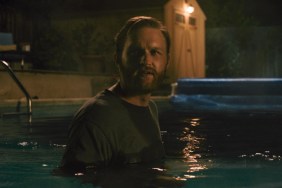
With the Watergate scandal making headlines, America’s involvement in the Vietnam War under scrutiny and the height of the Cold War upon a nation in desperate need of a win the country turns to an unlikely hero, chess player Bobby Fischer. Edward Zwick‘s Pawn Sacrifice builds to 1972’s World Chess Championship between Fischer and defending champion, Boris Spassky of the Soviet Union, but not only is this a film about a great chess player in Fischer as well as the paranoid demons he faced, but of his upbringing, his obsessive nature and, of course, the politics surrounding Fischer’s face-off against his Russian opponent.
For the most part Pawn Sacrifice plays as a standard, true life sports story, building to the big game at the end and eventually closing with the details of the lead character’s future beyond the events portrayed on the big screen. The fact Zwick was able to inject some life into watching two chess players battle it out is impressive considering chess is largely a game of thinking and little action. Using commentary from the television broadcast of the Fischer and Spassky game, James Newton Howard‘s moody score and the reactions from each player’s respective corners, the chess scenes have far more life to them than I could have expected. The two player’s personal quirks also help in this matter, but I’ll save those little surprises for you to see for yourself.
The screenplay, written by Steven Knight (Locke, Eastern Promises) begins in 1951 and tracks Fischer’s story as a young boy to the 1963 World Championships where Fischer (played by Tobey Maguire for the majority of the film’s duration) accused the Russians of collusion, throwing games intentionally to prevent him from having any chance at victory.
Seemingly denied the chance to claim the right to call himself the best chess player in the world at the time of his accusation, an opportunity would show itself once again as lawyer Paul Marshall (Michael Stuhlbarg) enters the picture, working pro-bono and, more-or-less, serving as a slave to Fischer’s every wish and they are many. Brought along as his second is Father Bill Lombardy (Peter Sarsgaard), a priest first, but a one-time chess player that actually beat both Spassky and Fischer earlier in his life. He comes along to help Fischer practice and prepare, but it soon becomes about more than just chess as the political atmosphere is heating up as is Fischer’s paranoia, believing his phones are tapped, thinking he’s being followed and many more such delusions.
Overall, the film is a hit down the middle for a solid double. It’s competent, well put together and the performances are strong from all involved. Maguire plays Fischer mostly as a spoiled child, but such is the nature of his mental instability. Stuhlbarg was a good choice for Marshall, a character willing to be yelled at and still able to keep his shit together considering the circumstances while Sarsgaard as Father Lombardy is along not only as a second, but as something of a sounding board. Schrieber’s role is relatively limited, but he isn’t painted as a villain, but instead as a peer, shown having his own bout with paranoia, though nothing nearly as extreme as Fischer.
Pawn Sacrifice is a good movie, though nothing altogether ground-breaking or entirely revealing. “Competent” is the word that first comes to mind, though there was one line of dialogue I found rather profound toward the end of the film as Fischer says, “Everyone thinks there are all these options, but there’s only one right move and in the end there’s no place to go.” Fischer attributes the quote to playing chess, and in such a situation how could it not also double as a recipe for madness considering how much time is spent searching for that one right move and how defeating it is once you realize you have nowhere left to go.









